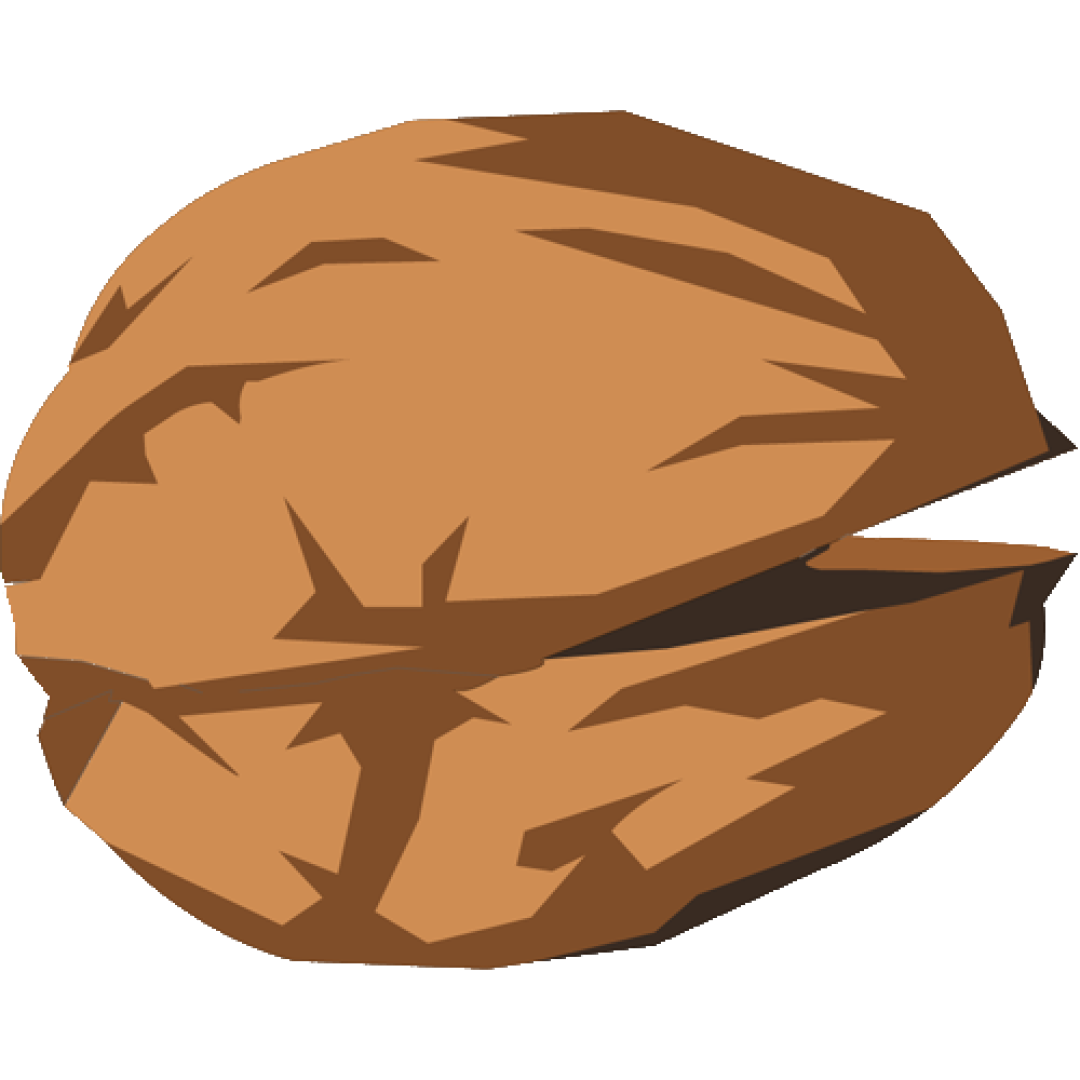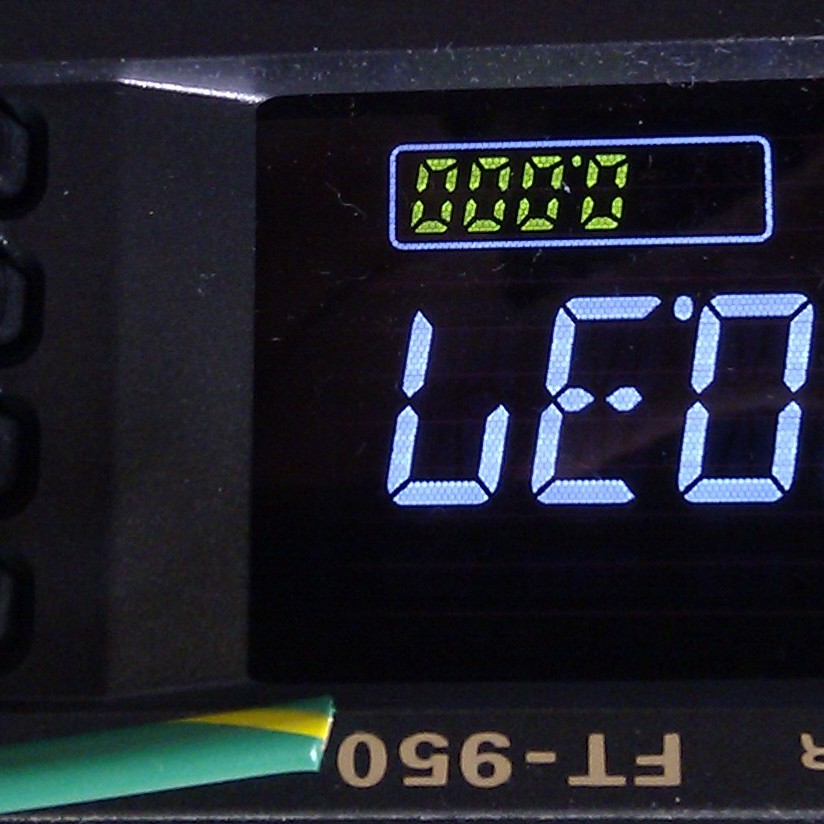Day 6: Wait for It
Megathread guidelines
- Keep top level comments as only solutions, if you want to say something other than a solution put it in a new post. (replies to comments can be whatever)
- Code block support is not fully rolled out yet but likely will be in the middle of the event. Try to share solutions as both code blocks and using something such as https://topaz.github.io/paste/ , pastebin, or github (code blocks to future proof it for when 0.19 comes out and since code blocks currently function in some apps and some instances as well if they are running a 0.19 beta)
FAQ
- What is this?: Here is a post with a large amount of details: https://programming.dev/post/6637268
- Where do I participate?: https://adventofcode.com/
- Is there a leaderboard for the community?: We have a programming.dev leaderboard with the info on how to join in this post: https://programming.dev/post/6631465
Today was easy enough that I felt confident enough to hammer out a solution in Uiua, so read and enjoy (or try it out live):
{"Time: 7 15 30" "Distance: 9 40 200"} StoInt ← /(+ ×10) ▽×⊃(≥0)(≤9). -@0 Count ← ( ⊙⊢√-×4:×.⍘⊟. # Determinant, and time +1-⊃(+1↥0⌊÷2-)(-1⌈÷2+) # Diff of sanitised roots ) ≡(↘1⊐⊜∘≠@\s.) ⊃(/×≡Count⍉∵StoInt)(Count⍉≡(StoInt⊐/⊂))Rust
I went with solving the quadratic equation, so part 2 was just a trivial change in parsing. It was a bit janky to find the integer that is strictly larger than a floating point number, but it all worked out.
(number+1).floor()does the trickOh yeah, that’s clever. I’ll remember that when it comes up again.
In Python when using numpy to find the roots, sometimes you get a numeric artifact like 30.99999999999, which breaks this. Make sure to limit the significant digits to a sane amount like 5 with rounding to prevent that.
I wanted to try the easy approach first and see how slow it was. Didn’t even take a second for part 2. So I just skipped the mathematical solution entirely.
Nim
Hey, waitaminute, this isn’t a programming puzzle. This is algebra homework!
Part 2 only required a trivial change to the parsing, the rest of the code still worked. I kept the data as singleton arrays to keep it compatible.
Hi there! Looks like you linked to a Lemmy community using a URL instead of its name, which doesn’t work well for people on different instances. Try fixing it like this: !nim@programming.dev
Rust
Feedback welcome! Feel like I’m getting the hand of Rust more and more.
use regex::Regex; pub fn part_1(input: &str) { let lines: Vec<&str> = input.lines().collect(); let time_data = number_string_to_vec(lines[0]); let distance_data = number_string_to_vec(lines[1]); // Zip time and distance into a single iterator let data_iterator = time_data.iter().zip(distance_data.iter()); let mut total_possible_wins = 1; for (time, dist_req) in data_iterator { total_possible_wins *= calc_possible_wins(*time, *dist_req) } println!("part possible wins: {:?}", total_possible_wins); } pub fn part_2(input: &str) { let lines: Vec<&str> = input.lines().collect(); let time_data = number_string_to_vec(&lines[0].replace(" ", "")); let distance_data = number_string_to_vec(&lines[1].replace(" ", "")); let total_possible_wins = calc_possible_wins(time_data[0], distance_data[0]); println!("part 2 possible wins: {:?}", total_possible_wins); } pub fn calc_possible_wins(time: u64, dist_req: u64) -> u64 { let mut ways_to_win: u64 = 0; // Second half is a mirror of the first half, so only calculate first part for push_time in 1..=time / 2 { // If a push_time crosses threshold the following ones will too so break loop if push_time * (time - push_time) > dist_req { // There are (time+1) options (including 0). // Subtract twice the minimum required push time, also removing the longest push times ways_to_win += time + 1 - 2 * push_time; break; } } ways_to_win } fn number_string_to_vec(input: &str) -> Vec { let regex_number = Regex::new(r"\d+").unwrap(); let numbers: Vec = regex_number .find_iter(input) .filter_map(|m| m.as_str().parse().ok()) .collect(); numbers }Somewhere on the way you seem to have converted ampersands to HTML entities :)
It’s caused by lemmy code blocks. They don’t handle
&correctly. See.Ah. Never noticed that before :)
I’m no rust expert, but:
you can use
into_iter()instead ofiter()to get owned data (if you’re not going to use the original container again). Withinto_iter()you dont have to deref the values every time which is nice.Also it’s small potatoes, but calling
input.lines().collect()allocates a vector (that isnt ever used again) whenlines()returns an iterator that you can use directly. You can instead passlines.next().unwrap()into your functions directly.Strings have a method called
split_whitespace()(also asplit_ascii_whitespace()) that returns an iterator over tokens separated by any amount of whitespace. You can then call.collect()with a String turbofish (i’d type it out but lemmy’s markdown is killing me) on that iterator. Iirc that ends up being faster because replacing characters with an empty character requires you to shift all the following characters backward each time.Overall really clean code though. One of my favorite parts of using rust (and pain points of going back to other languages) is the crazy amount of helper functions for common operations on basic types.
Edit: oh yeah, also strings have a
.parse()method to converts it to a number e.g.data.parse()where the parse takes a turbo fish of the numeric type. As always, turbofishes arent required if rust already knows the type of the variable it’s being assigned to.Thanks for making some time to check my code, really appreciated! the split_whitespace is super useful, for some reason I expected it to just split on single spaces, so I was messing with trim() stuff the whole time :D. Could immediately apply this feedback to the Challenge of today! I’ve now created a general function I can use for these situations every time:
input.split_whitespace() .map(|m| m.parse().expect("can't parse string to int")) .collect() }Thanks again!
Dart Solution
I decided to use the quadratic formula to solve part 1 which slowed me down while I struggled to remember how it went, but meant that part 2 was a one line change.
This year really is a roller coaster…
int countGoodDistances(int time, int targetDistance) { var det = sqrt(time * time - 4 * targetDistance); return (((time + det) / 2).ceil() - 1) - (max(((time - det) / 2).floor(), 0) + 1) + 1; } solve(List> data, [param]) { var distances = data.first .indices() .map((ix) => countGoodDistances(data[0][ix], data[1][ix])); return distances.reduce((s, t) => s * t); } getNums(l) => l.split(RegExp(r'\s+')).skip(1); part1(List lines) => solve([for (var l in lines) getNums(l).map(int.parse).toList()]); part2(List lines) => solve([ for (var l in lines) [int.parse(getNums(l).join(''))] ]);Haskell
This problem has a nice closed form solution, but brute force also works.
(My keyboard broke during part two. Yet another day off the bottom of the leaderboard…)
import Control.Monad import Data.Bifunctor import Data.List readInput :: String -> [(Int, Int)] readInput = map (\[t, d] -> (read t, read d)) . tail . transpose . map words . lines -- Quadratic formula wins :: (Int, Int) -> Int wins (t, d) = let c = fromIntegral t / 2 :: Double h = sqrt (fromIntegral $ t * t - 4 * d) / 2 in ceiling (c + h) - floor (c - h) - 1 main = do input <- readInput <$> readFile "input06" print $ product . map wins $ input print $ wins . join bimap (read . concatMap show) . unzip $ inputA nice change of pace from the previous puzzles, more maths and less parsing
Python
import math import re def create_table(filename: str) -> list[tuple[int, int]]: with open('day6.txt', 'r', encoding='utf-8') as file: times: list[str] = re.findall(r'\d+', file.readline()) distances: list[str] = re.findall(r'\d+', file.readline()) table: list[tuple[int, int]] = [] for t, d in zip(times, distances): table.append((int(t), int(d))) return table def get_possible_times_num(table_entry: tuple[int, int]) -> int: t, d = table_entry l_border: int = math.ceil(0.5 * (t - math.sqrt(t**2 -4 * d)) + 0.0000000000001) # Add small num to ensure you round up on whole numbers r_border: int = math.floor(0.5*(math.sqrt(t**2 - 4 * d) + t) - 0.0000000000001) # Subtract small num to ensure you round down on whole numbers return r_border - l_border + 1 def puzzle1() -> int: table: list[tuple[int, int]] = create_table('day6.txt') possibilities: int = 1 for e in table: possibilities *= get_possible_times_num(e) return possibilities def create_table_2(filename: str) -> tuple[int, int]: with open('day6.txt', 'r', encoding='utf-8') as file: t: str = re.search(r'\d+', file.readline().replace(' ', '')).group(0) d: str = re.search(r'\d+', file.readline().replace(' ', '')).group(0) return int(t), int(d) def puzzle2() -> int: t, d = create_table_2('day6.txt') return get_possible_times_num((t, d)) if __name__ == '__main__': print(puzzle1()) print(puzzle2())deleted by creator
A nice simple one today. And only a half second delay for part two instead of half an hour. What a treat. I could probably have nicer input parsing, but that seems to be the theme this year, so that will become a big focus of my next round through these I’m guessing. The algorithm here to get the winning possibilities could also probably be improved upon by figuring out what the number of seconds for the current record is, and only looping from there until hitting a number that doesn’t win, as opposed to brute-forcing the whole loop.
https://github.com/capitalpb/advent_of_code_2023/blob/main/src/solvers/day06.rs
#[derive(Debug)] struct Race { time: u64, distance: u64, } impl Race { fn possible_ways_to_win(&self) -> usize { (0..=self.time) .filter(|time| time * (self.time - time) > self.distance) .count() } } pub struct Day06; impl Solver for Day06 { fn star_one(&self, input: &str) -> String { let mut race_data = input .lines() .map(|line| { line.split_once(':') .unwrap() .1 .split_ascii_whitespace() .filter_map(|number| number.parse::().ok()) .collect::>() }) .collect::>(); let times = race_data.pop().unwrap(); let distances = race_data.pop().unwrap(); let races = distances .into_iter() .zip(times) .map(|(time, distance)| Race { time, distance }) .collect::>(); races .iter() .map(|race| race.possible_ways_to_win()) .fold(1, |acc, count| acc * count) .to_string() } fn star_two(&self, input: &str) -> String { let race_data = input .lines() .map(|line| { line.split_once(':') .unwrap() .1 .replace(" ", "") .parse::() .unwrap() }) .collect::>(); let race = Race { time: race_data[0], distance: race_data[1], }; race.possible_ways_to_win().to_string() } }Raku
I spent a lot more time than necessary optimizing the count-ways-to-beat function, but I’m happy with the result. This is my first time using the | operator to flatten a list into function arguments.
edit: unfortunately, the lemmy web page is unable to properly display the source code in a code block. It doesn’t display text enclosed in pointy brackets <>, perhaps it looks too much like HTML. View code on github.
Code
use v6; sub MAIN($input) { my $file = open $input; grammar Records { token TOP { "\n" "\n"* } token times { "Time:" \s* +%\s+ } token distances { "Distance:" \s* +%\s+ } token num { \d+ } } my $records = Records.parse($file.slurp); my $part-one-solution = 1; for $records».Int Z $records».Int -> $record { $part-one-solution *= count-ways-to-beat(|$record); } say "part 1: $part-one-solution"; my $kerned-time = $records.join.Int; my $kerned-distance = $records.join.Int; my $part-two-solution = count-ways-to-beat($kerned-time, $kerned-distance); say "part 2: $part-two-solution"; } sub count-ways-to-beat($time, $record-distance) { # time = button + go # distance = go * button # 0 = go^2 - time * go + distance # go = (time +/- sqrt(time**2 - 4*distance))/2 # don't think too hard: # if odd t then t/2 = x.5, # so sqrt(t**2-4*d)/2 = 2.3 => result = 4 # and sqrt(t**2-4*d)/2 = 2.5 => result = 6 # therefore result = 2 * (sqrt(t**2-4*d)/2 + 1/2).floor # even t then t/2 = x.0 # so sqrt(t^2-4*d)/2 = 2.x => result = 4 + 1(shared) = 5 # therefore result = 2 * (sqrt(t^2-4*d)/2).floor + 1 # therefore result = 2 * ((sqrt(t**2-4*d)+t%2)/2).floor + 1 - t%2 # Note: sqrt produces a Num, so perhaps the result could be off by 1 or 2, # but it solved my AoC inputs correctly 😃. my $required-distance = $record-distance + 1; return 2 * ((sqrt($time**2 - 4*$required-distance) + $time%2)/2).floor + 1 - $time%2; }C
Brute forced it, runs in 60 ms or so. Only shortcut is quitting the loop when the distance drops below the record. I didn’t bother with the closed form solution here because a) it ran so fast and b) I was concerned about floats, rounding and off-by-one errors. Will probably implement it later!
Edit: implemented the closed form solution. Feels dirty copying a formula without really understanding it…
Should you be using
SCNi64instead ofPRIi64insscanf?Yes, thank you!
Scala3
// math.floor(i) == i if i.isWhole, but we want i-1 def hardFloor(d: Double): Long = (math.floor(math.nextAfter(d, Double.NegativeInfinity))).toLong def hardCeil(d: Double): Long = (math.ceil(math.nextAfter(d, Double.PositiveInfinity))).toLong def wins(t: Long, d: Long): Long = val det = math.sqrt(t*t/4.0 - d) val high = hardFloor(t/2.0 + det) val low = hardCeil(t/2.0 - det) (low to high).size def task1(a: List[String]): Long = def readLongs(s: String) = s.split(raw"\s+").drop(1).map(_.toLong) a match case List(s"Time: $time", s"Distance: $dist") => readLongs(time).zip(readLongs(dist)).map(wins).product case _ => 0L def task2(a: List[String]): Long = def readLong(s: String) = s.replaceAll(raw"\s+", "").toLong a match case List(s"Time: $time", s"Distance: $dist") => wins(readLong(time), readLong(dist)) case _ => 0LGolang
Pretty straightforward. The only optimization I did is that the pairs are symmetric (3ms hold and 4ms travel is the same as 4ms hold and 3ms travel).
Part 1
file, _ := os.Open("input.txt") defer file.Close() scanner := bufio.NewScanner(file) scanner.Scan() times := strings.Fields(strings.Split(scanner.Text(), ":")[1]) scanner.Scan() distances := strings.Fields(strings.Split(scanner.Text(), ":")[1]) n := len(times) countProduct := 1 for i := 0; i < n; i++ { t, _ := strconv.Atoi(times[i]) d, _ := strconv.Atoi(distances[i]) count := 0 for j := 0; j <= t/2; j++ { if j*(t-j) > d { if t%2 == 0 && j == t/2 { count++ } else { count += 2 } } } countProduct *= count } fmt.Println(countProduct)Part 2
file, _ := os.Open("input.txt") defer file.Close() scanner := bufio.NewScanner(file) scanner.Scan() time := strings.ReplaceAll(strings.Split(scanner.Text(), ":")[1], " ", "") scanner.Scan() distance := strings.ReplaceAll(strings.Split(scanner.Text(), ":")[1], " ", "") t, _ := strconv.Atoi(time) d, _ := strconv.Atoi(distance) count := 0 for j := 0; j <= t/2; j++ { if j*(t-j) > d { if t%2 == 0 && j == t/2 { count++ } else { count += 2 } } } fmt.Println(count)ah damn, didn’t think of the symmetric pairs
Rust:
For part 2, all I did was edit the input and change
i32toi64.spoiler
use std::fs; use std::path::PathBuf; use clap::Parser; #[derive(Parser)] #[command(author, version, about, long_about = None)] struct Cli { input_file: PathBuf, } fn main() { // Parse CLI arguments let cli = Cli::parse(); // Read file let input_text = fs::read_to_string(&cli.input_file) .expect(format!("File \"{}\" not found", cli.input_file.display()).as_str()); let input_lines: Vec<&str> = input_text.lines().collect(); let times: Vec = input_lines[0] .split_ascii_whitespace() .skip(1) .map(|s| s.parse().unwrap()) .collect(); let distances: Vec = input_lines[1] .split_ascii_whitespace() .skip(1) .map(|s| s.parse().unwrap()) .collect(); println!("{:?}", times); println!("{:?}", distances); let mut product: i64 = 1; for (time, distance) in times.iter().zip(distances) { let mut n = 0; for b in 0..*time { if time * b - b * b > distance { n += 1; } } product *= n; } println!("{}", product) }[JavaScript] Relatively easy one today
Part 1
function part1(input) { const split = input.split("\n"); const times = split[0].match(/\d+/g).map((x) => parseInt(x)); const distances = split[1].match(/\d+/g).map((x) => parseInt(x)); let sum = 0; for (let i = 0; i < times.length; i++) { const time = times[i]; const recordDistance = distances[i]; let count = 0; for (let j = 0; j < time; j++) { const timePressed = j; const remainingTime = time - j; const travelledDistance = timePressed * remainingTime; if (travelledDistance > recordDistance) { count++; } } if (sum == 0) { sum = count; } else { sum = sum * count; } } return sum; }Part 2
function part2(input) { const split = input.split("\n"); const time = parseInt(split[0].split(":")[1].replace(/\s/g, "")); const recordDistance = parseInt(split[1].split(":")[1].replace(/\s/g, "")); let count = 0; for (let j = 0; j < time; j++) { const timePressed = j; const remainingTime = time - j; const travelledDistance = timePressed * remainingTime; if (travelledDistance > recordDistance) { count++; } } return count; }Was a bit late with posting the solution thread and solving this since I ended up napping until 2am, if anyone notices theres no solution thread and its after the leaderboard has been filled (can check from the stats page if 100 people are done) feel free to start one up (I just copy paste the text in each of them)
Well, this one ended up being a really nice and terse solution when done naïvely, here with a trimmed snippet from my simple solution;
Ruby
puts "Part 1:", @races.map do |race| (0..race[:time]).count { |press_dur| press_dur * (race[:time] - press_dur) > race[:distance] } end.inject(:*) full_race_time = @races.map { |r| r[:time].to_s }.join.to_i full_race_dist = @races.map { |r| r[:distance].to_s }.join.to_i puts "Part 2:", (0..full_race_time).count { |press_dur| press_dur * (full_race_time - press_dur) > full_race_dist }














